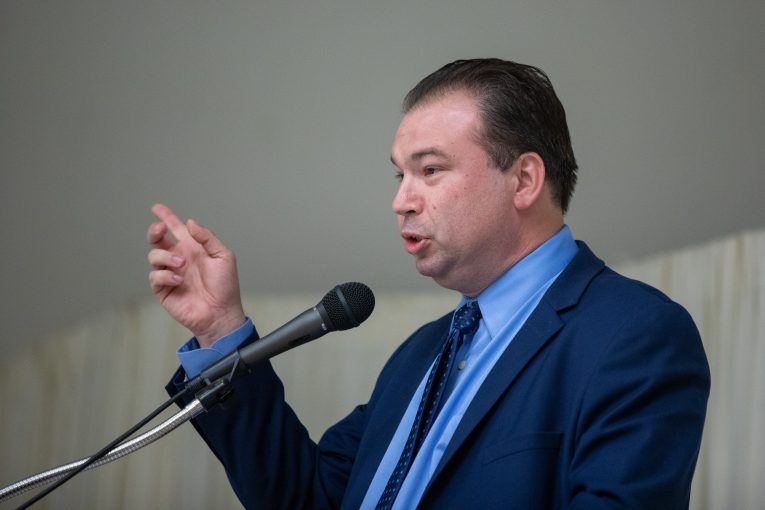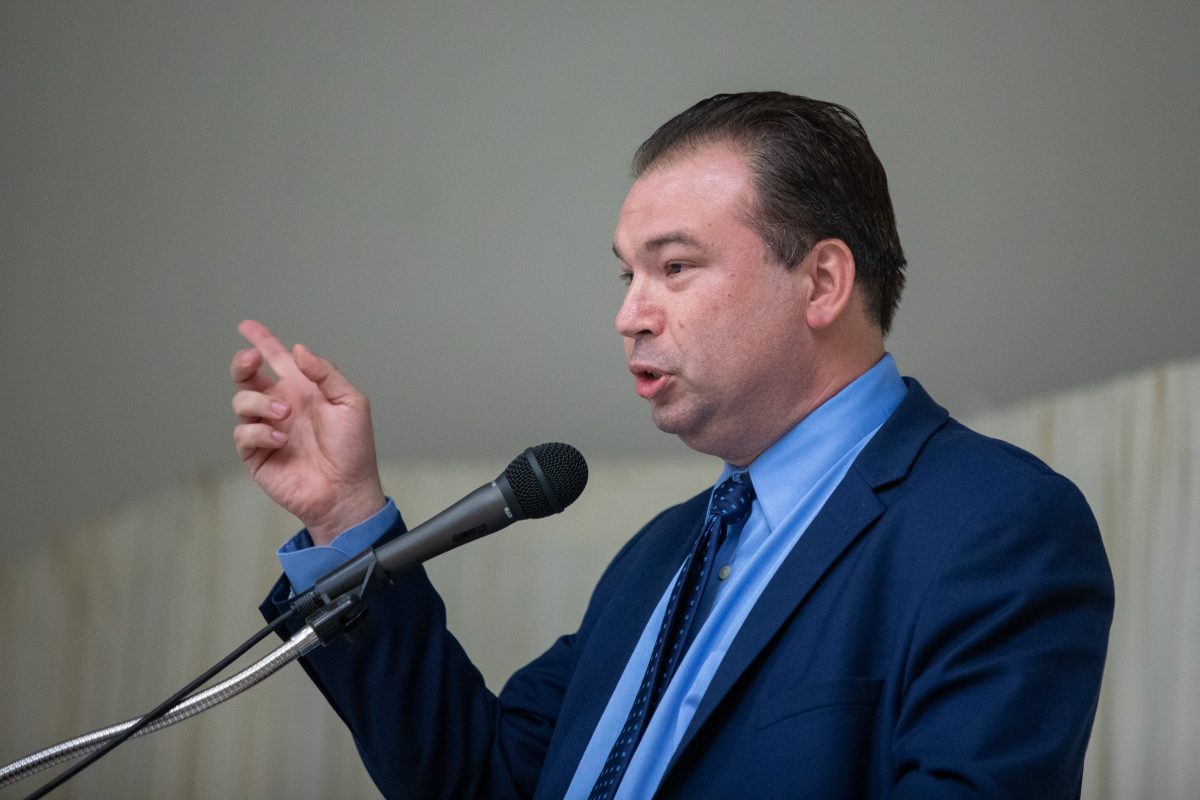

By Jeffrey Deskovic
“Looking back” will feature reprints of articles that Jeff previously wrote while a columnist at The Westchester Guardian, which encompass topics that are applicable here in CA as well as across the country and not simply applicable to NY.
According to news reports, the Douglas County, Nebraska, crime lab director, David Kofoed, was sentenced to 20 months—nearly four years—in prison for evidence tampering.
In 2006, cousins Matthew Livers and Nicholas Sampson were charged with the shotgun slayings of their aunt and uncle, Wayne and Sharmon Stock, based upon Kofoed’s manufactured blood evidence. According to the Omaha World Herald, “a speck of murder victim Wayne Stock’s blood was found on a piece of filter paper Kofoed said he used to swab a car authorities then believed Sampson and Livers used the night of the killings. The speck of blood was the only evidence among 420 items that linked the cousins to the slayings.”
Sampson spent nearly six months in jail, while Livers spent eight months. The real perpetrators were later located and pled guilty to the crimes.
Kofoed was then arrested for tampering with evidence. The Omaha World Herald reported that “Judge Rehmeier stated that Kofoed’s crime was particularly egregious because his actions tarnished the reputation of Nebraska’s criminal justice system.” In giving Kofoed a jail term, the judge took into account the impact of Kofoed’s actions on his victims, Sampson and Livers: “It’s clear they suffered serious harm from an emotional standpoint.”
Kofoed’s fraud begs the question how many other fraudulent “experts” are out there who fabricated evidence, causing innocent people to be arrested and possibly convicted. Over the years, forensic misconduct has been uncovered on many occasions. Recent examples are Fred Zain, Pam Fish, and former Westchester County Medical examiner, Louis Roh. Zain exaggerated DNA and other test results from his West Virginia lab to support prosecutors’ case theories even when the science refuted those theories. Fish, a Chicago crime lab serologist, perjured herself about test results. Roh’s dubious autopsy conclusions have been attacked by other pathologists.
False testimony about forensic evidence lends scientific credence to a false accusation. Sampson and Livers were lucky, if spending six and eight months in jail wrongfully can ever be called lucky. They were only falsely charged, not wrongfully convicted. In many other cases, however, forensic misconduct results in a conviction and a much longer period of wrongful incarceration—if the defendant is fortunate enough to be eventually cleared. We simply do not know the number of wrongfully convicted men who still languish in our prisons.
The psychological impact of Kofoed’s actions upon Sampson and Livers cannot be minimized. In his letter to the judge, Sampson described the “fear and hopelessness” he felt “being held in solitary confinement, facing first-degree murder charges and the possibility of life in prison,” even though he was innocent. There is simply no terror like the prospect of facing a wrongful conviction.
Why do law enforcement officials enjoy immunity when they intentionally fabricate or withhold evidence, or engage in other misconduct? The criminal justice system rarely acknowledges perjury or exaggerated testimony by cops and forensic scientists. Career sanctions for such misconduct are even rarer. Rarer still are criminal prosecutions and jail time for such misconduct.
Mike Nifong, the North Carolina prosecutor who maliciously prosecuted Duke Lacrosse players for gang rape, nearly destroying their lives forever, spent only one day in jail. The North Carolina Attorney General took the unusual step of declaring the players actually innocent of any crime. He did so, no doubt, to limit the state’s damages in the players’ civil action to compensate them for the indelible stain on their reputations caused by Nifong’s outrageous misconduct.
Kofoed received jail time. It should happen to any rogue cop, prosecutor or forensic scientist who fabricates or withholds evidence to convict the innocent.
Why is there no accountability? The district attorney’s association opposes legislation to impose criminal penalties on errant prosecutors. Does the group want its member to continue to get away with misconduct? Or head off any penalties once their members get caught?
Why is it that even non-profit groups concerned about wrongful convictions resist legislative changes to provide criminal penalties for prosecutorial misconduct? Why are voices not raised in favor of prosecuting law enforcement officers who go too far? Why are their crimes less serious than fraud by white-collar professionals?
Fraud by law enforcement is worse. White-collar criminals deprive people of money. Law enforcement criminals deprive people of something far more valuable: liberty.
Law enforcement professionals hold a position of public trust and victimize a vulnerable population—those suspected and/or charged with committing crimes. As Livers said in his victim letter to the judge before Kofoed’s sentencing: “a sentence without prison time would be an injustice.”
We should keep in mind Justice Brandeis’s famous dissent in the 1928 bootlegging case, Olmstead v. United States: “If the government becomes the lawbreaker, it breeds contempt for the law. It invites every man to become a law unto himself. It invites anarchy. To declare that in the administration of the criminal law the end justifies the means—to declare that the government may commit crimes in order to secure the conviction of a private criminal—would bring terrible retribution.”
“Jeffrey Deskovic, Esq, MA, is an internationally recognized wrongful conviction expert and founder of The Jeffrey Deskovic Foundation for Justice, which has freed 9 wrongfully convicted people and helped pass 3 laws aimed at preventing wrongful conviction. Jeff is an advisory board member of It Could Happen To You, which has chapters in CA, NY, and PA. He serves on the Global Advisory Council for Restorative Justice International, and is a sometimes co-host and co-producer of the show, “360 Degrees of Success.” Jeff was exonerated after 16 years in prison-from age 17-32- before DNA exonerated him and identified the actual perpetrator. A short documentary about his life is entitled “Conviction“, and episode 1 of his story in Virtual Reality is called, “Once Upon A Time In Peekskill“. Jeff has a Masters Degree from the John Jay College of Criminal Justice, with his thesis written on wrongful conviction causes and reforms needed to address them, and a law degree from the Elisabeth Haub School of Law at Pace University. Jeff is now a practicing attorney.
